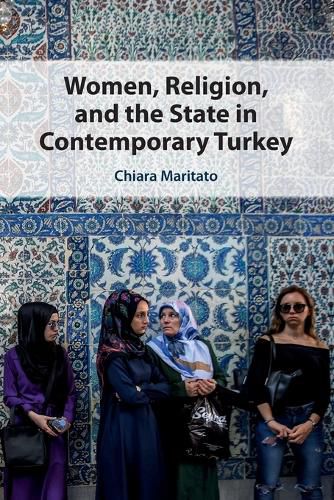Readings Newsletter
Become a Readings Member to make your shopping experience even easier.
Sign in or sign up for free!
You’re not far away from qualifying for FREE standard shipping within Australia
You’ve qualified for FREE standard shipping within Australia
The cart is loading…






Tracing the centrality of women in the definition of Turkish secularism, this study investigates the 2003 decision to increase the number of women officers employed by the Presidency of Religious Affairs (Diyanet). It explores how, as professional religious officers, the female Diyanet preachers epitomize a pious, modern and highly educated woman whose role in society has been raised to prominence. Based on extensive fieldwork in Turkey, and drawing on a rich ethnography of the activities conducted by Diyanet women preachers in Istanbul, Chiara Maritato disentangles the state’s attempt to standardize a multifaceted female religious participation. In using the feminization of the Diyanet as a prism through which to understand the significance of a renewed presence of Islam in the Turkish public realm, she casts light on a broader reformulation of religious services for women and families in Turkey, and pinpoints how this pervasive moral support has been able to penetrate and reshape even secular spaces.
$9.00 standard shipping within Australia
FREE standard shipping within Australia for orders over $100.00
Express & International shipping calculated at checkout
Tracing the centrality of women in the definition of Turkish secularism, this study investigates the 2003 decision to increase the number of women officers employed by the Presidency of Religious Affairs (Diyanet). It explores how, as professional religious officers, the female Diyanet preachers epitomize a pious, modern and highly educated woman whose role in society has been raised to prominence. Based on extensive fieldwork in Turkey, and drawing on a rich ethnography of the activities conducted by Diyanet women preachers in Istanbul, Chiara Maritato disentangles the state’s attempt to standardize a multifaceted female religious participation. In using the feminization of the Diyanet as a prism through which to understand the significance of a renewed presence of Islam in the Turkish public realm, she casts light on a broader reformulation of religious services for women and families in Turkey, and pinpoints how this pervasive moral support has been able to penetrate and reshape even secular spaces.